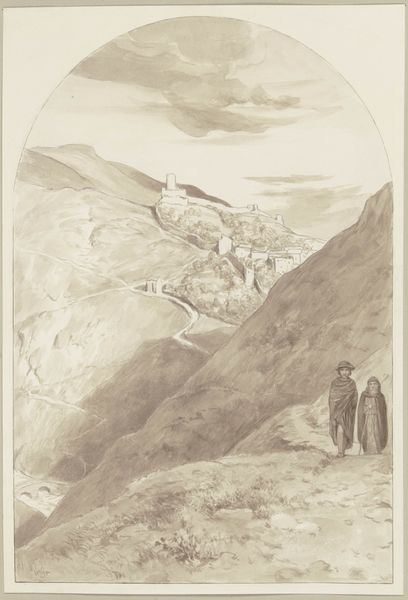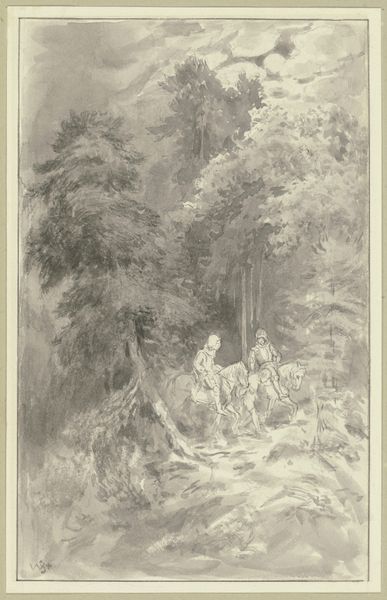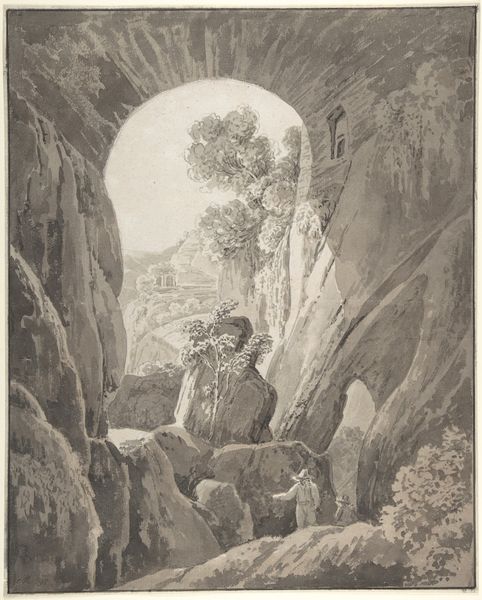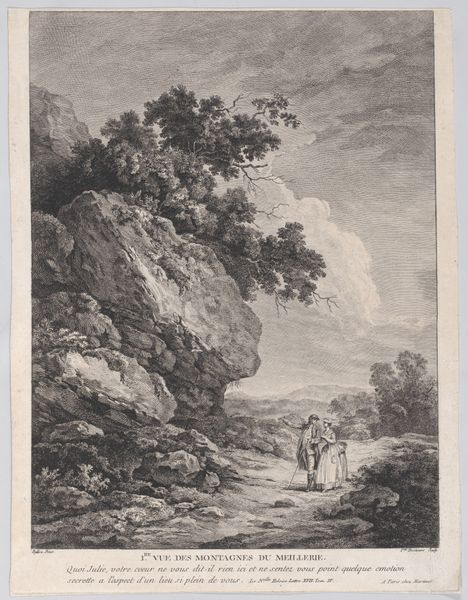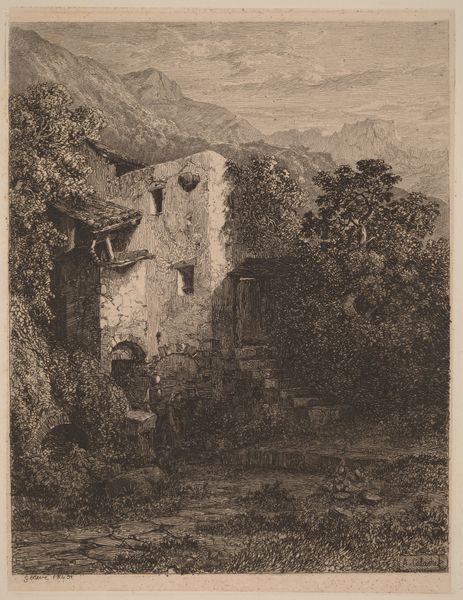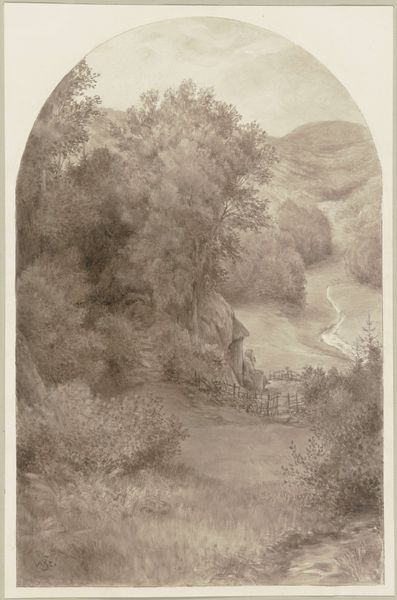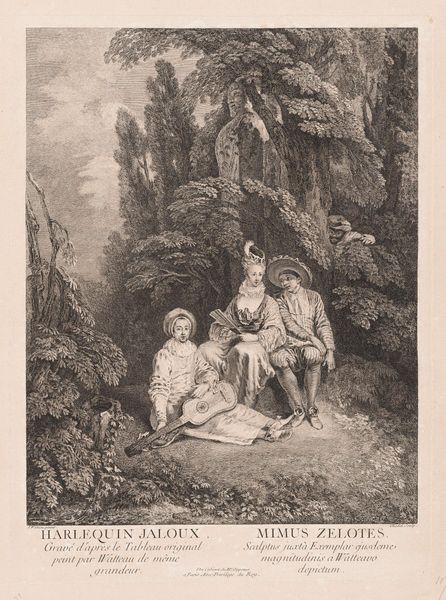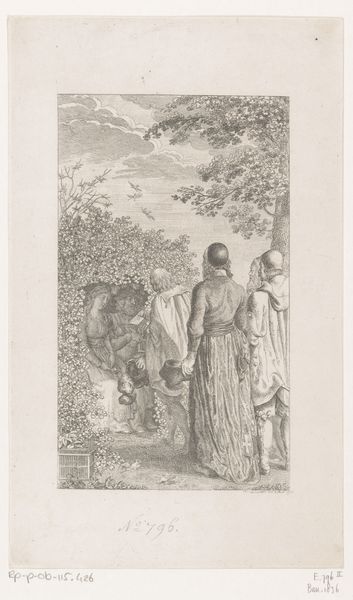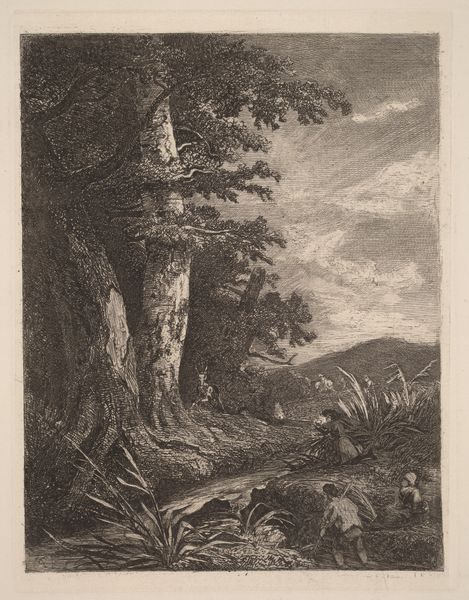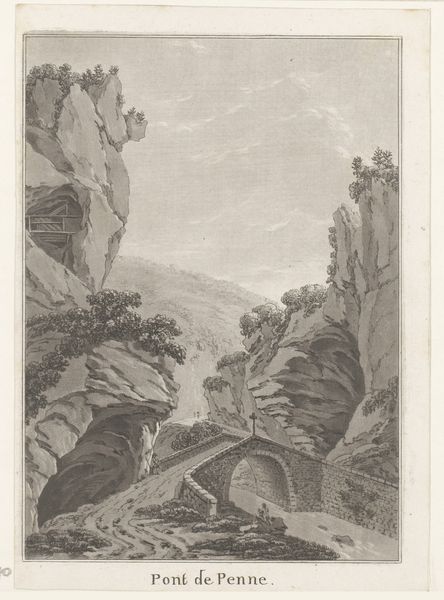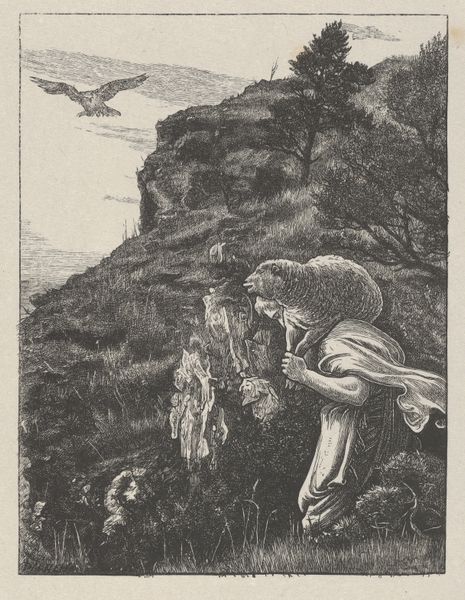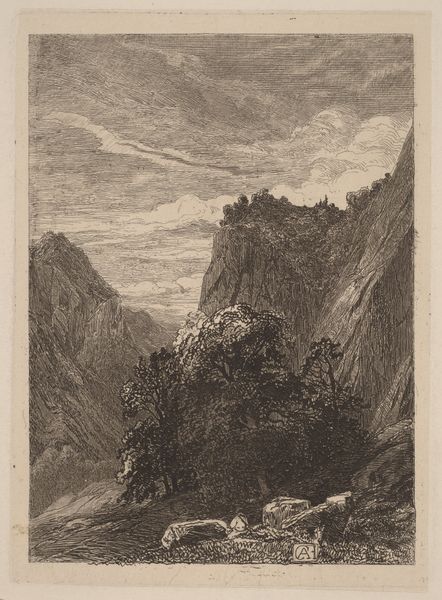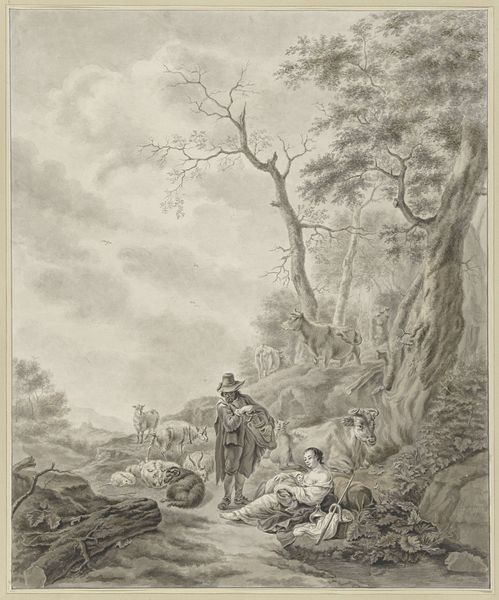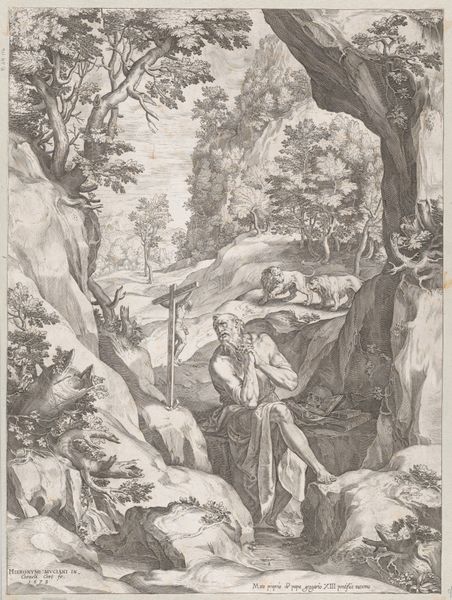![Brun und Diether auf dem HeimwegIllustration zu_ Heinrich Steinhausen, „Irmela. Eine Geschichte aus alter Zeit“, Prachtausgabe, Leipzig_ Georg Böhme, [1884], S. 69 by Wilhelm Steinhausen](/_next/image?url=https%3A%2F%2Fd2w8kbdekdi1gv.cloudfront.net%2FeyJidWNrZXQiOiAiYXJ0ZXJhLWltYWdlcy1idWNrZXQiLCAia2V5IjogImFydHdvcmtzL2VlN2Y5ODYzLWYwZjMtNGM3YS05YWE4LWIzNzI1MmU3M2UwYi9lZTdmOTg2My1mMGYzLTRjN2EtOWFhOC1iMzcyNTJlNzNlMGJfZnVsbC5qcGciLCAiZWRpdHMiOiB7InJlc2l6ZSI6IHsid2lkdGgiOiAxOTIwLCAiaGVpZ2h0IjogMTkyMCwgImZpdCI6ICJpbnNpZGUifX19&w=3840&q=75)
Brun und Diether auf dem HeimwegIllustration zu_ Heinrich Steinhausen, „Irmela. Eine Geschichte aus alter Zeit“, Prachtausgabe, Leipzig_ Georg Böhme, [1884], S. 69 c. 1884
0:00
0:00
Copyright: Public Domain
Curator: Ah, yes. Here we have Wilhelm Steinhausen's "Brun und Diether auf dem Heimweg," an illustration dating back to around 1884, made with ink and pencil. It was originally included in Heinrich Steinhausen’s "Irmela. Eine Geschichte aus alter Zeit". Editor: It has this wistful, almost melancholic beauty, doesn't it? Like a forgotten ballad. The way the light catches the stream... dreamy. I bet you could hear the rush of water if you closed your eyes long enough. Curator: The landscape style and use of charcoal aligns with the Romanticism of the era, of course. But if you look closely at the figures, you can appreciate the labour involved in achieving this composition. Editor: Totally. I imagine the artist sketching directly from nature to feel the air on the high ridge with his subject. But you see the difference in how each figure engages with the scene. One marches onward, while the other reflects on the sublime grandeur of the landscape! A kind of material journey. Curator: That sublime grandeur was, in part, made accessible by improvements in the mass manufacture of pigments, pencils and paper around the same time. Editor: Okay, but let's think about what they're thinking! Diether seems so stoic, maybe burdened by the weight of memory. Brun seems much more grounded, he trudges forward step by step. Curator: It certainly emphasizes a tension of modern life. How should humans act in Nature? By 1884 industrial extraction and colonization made natural landscapes commodities as much as emotional escapes. Editor: Interesting how Steinhausen manages to make such a politically fraught statement in something so visually pleasant. Curator: It is about both. His work shows that Romanticism has less to do with personal escapism and more with confronting social material shifts that were felt during industrialization. Editor: I never looked at romanticism that way! Thank you! Curator: Of course, maybe that can change what it might mean to you when you gaze on other paintings.
Comments
No comments
Be the first to comment and join the conversation on the ultimate creative platform.
